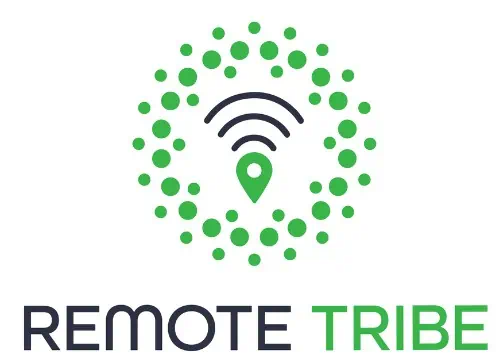Constant upskilling is the new normal for anyone hoping to stay in the employment market. Nowadays a lot of jobs are in danger of becoming obsolete and the threat is obvious and real. Building some new skills, especially in the technology field could give you a big competitive edge against other candidates.
According to McKinsey, 400 million jobs worldwide will face automation by 2030, while 800 million jobs worldwide will face automation at the fastest rate. McKinsey suggested that the United States could lose between 16 million and 54 million jobs between 2016 and 2030.
Another aspect of upskilling that should not be ignored are soft skills. These are at least as important as hard skills. Emotional intelligence, collaboration, and communication are more critical to the world economy than they’ve ever been.
1. Start taking online courses – cheap and affordable
Our society is changing at a faster pace than ever hence you have to be prepared to work on your hard skills throughout your career. Industries change, jobs change, and those changes can happen quickly. On top of that, there are major events like COVID-19 that come once in a while and shake and dreshape the entire employment market.
Even if you have a degree, don’t expect your college education to fully train you on the skills required to build a great career. Globalisation and women’s participation into the labour force have made the employment market extremelly competitive.
At the moment, you have to stay involved in your industry and those industries auxiliary to your line of work. Set goals, know the terms for hard skills in your industry, and position yourself for career success. Moreover, always do some kind of training or upskilling to keep up the pace.
2. Stay in touch with “reality”
Staying up to date with the industry trends is a must, especially for professionals in the technology field.One can follow industry leaders via LinkedIn, YouTube channels, Twitter and other social media channels.
According to one survey, 52% read articles or professional literature to keep up-to-date while 49% attend conferences, seminars or webinars and 33% listen to relevant online content such as TED Talks and podcasts.
Also, 25% view content online shared by connections, while 23% read books and seek coaching and mentorships.
Don’t forget to ask mentors and the colleagues you admire for recommendations or opinions about jobs, trends and industry in general. Feel free to reach out. Linkedin is great for this.
3. Look for Free or Low-Cost Training
Did you know you can get free online courses from the most prestigious Universities in the US? You can find almost anything you want if you wish to upskill, from Marketing and Business courses to Health and Law. You won’t get the degree online(for most degrees you have to pay), but at least you’ll be able to get free knowledge from these famous institutions.
So if you want to get FREE EDUCATION online from Universities like Stanford, Northwestern, MIT, Colombia and others make sure to check the Coursera website.
COVID-19 has changed the educational system as well so many traditional universities where students would go and study in class rooms are offering now distance learning as part of their education offering.
For example, in the United Kingdom some of the most famous higher education schools offer their Bachelors and Masters Programmes online.
4. Get certified and upskill or just change your career
Check out certificate program for in-demand jobs and for blue-collar jobs. Many of them can equip you for a new career or can advance you in the current job by just getting a certificate and not a 4 year long degree.
You should consider using Coursera, Udemy, Open University and others for cheap or free courses relevant to your industry.
Just google “online certification” followed by the skill or industry and you’ll find endless online platforms that are very affordable and easy to follow.
If you would like to enter the technology field and get some certifications or just get your hands dirty with some code, you can easily sign up for websites like Udemy, Pluralsite or DataCamp.
They run offers all year round and the sometimes the courses start from 10 dollars and you can have them for life.
5. Join Meetups, Linkedin and Facebook group
Be sure to check local meetups and events on Facebook from like minded professionals who gather once a week or once a month in your local area to discuss projects, news and opportunities.
Meetup.com has meetings for almost anything you can imagine all over the world. From music to writing, acting and digital products. Just browse the groups and find the one that matches your profession or vocation and start attending.
Facebook has over 650 million groups on their platform. It’s almost impossible not to find something in your niche. These groups have become a thing lately, with communities of thousands of people joining discussions,debating ideas and finding solutions.
Last but not least, Linkedin also offers professional groups. They are not as engaging as the facebook ones, but excellent for networking and even finding jobs.
6. Get a mentor
Are you looking for a mentor? If you’re a young entrepreneur or just want to upskill, working with a mentor provides innumerable benefits; not only will you receive guidance, advice and help when trying to solve tough problems, you’ll also be able to leverage your mentor’s extended network of contacts for new partnerships, employees and clients.
Here are the places where you should be looking for a mentor:
- Online mentorship networks
- Networking Events
- Industry Meetups and professional events
- Volunteer events
- Social Media
7. Freelance Your New Skills
In 2018 experts predict that full-time freelancers will jump from 10%-30% of the job market in 2019 which actually happened. Technology has advanced so much that anyone can become a full-time freelancer by working remotely with an internet connection and registering a company within hours.
Studies show that over 20% of American freelancers are already making six-figure incomes and the gig economy continues to expand at a fast pace.
While you are still learning, you may want to put yourself out there by creating a profile on Upwork, Fiverr or even launching a blog with your profile . Put your new skills to good use and tap into the freelance marketplace. People that hire freelancers are often willing to work with not so experienced people in that field knowing the rate is not necessarily high. You don’t have to be a super expert to
Or who knows? You may rock in the freelancing world and decide to stay there. Often, freelancing on the side leads to lucrative careers in full-time freelancing.









